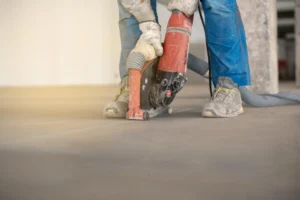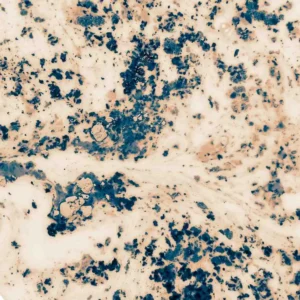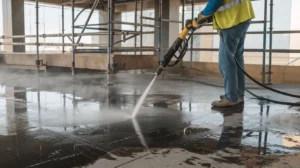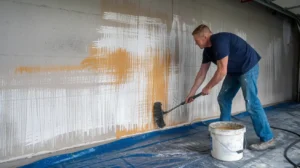How to Clean Marble Countertops is a question every homeowner with this luxurious surface encounters. Marble countertops add timeless elegance and sophistication to any space, but their delicate nature demands specific care. Without proper cleaning routines, their natural shine can fade, and stains can permanently damage the surface, making maintenance essential to preserve their beauty.
Keeping your marble countertops in pristine condition doesn’t have to be overwhelming. With the right techniques and tools, you can maintain their glossy appearance effortlessly. This guide will walk you through effective cleaning methods, stain removal tips, and ways to keep them damage-free for years to come.
How to Clean Marble Countertops

Step-by-Step Daily Cleaning Routine
Remove Debris and Dust
Marble surfaces can easily collect dust and debris, which may cause scratches if not cleared. Use a soft microfiber cloth or a dry dusting tool to gently sweep the surface. Avoid abrasive scrubbers to maintain the smooth finish of the marble.
Clean with a Damp Cloth
For everyday cleaning, a damp cloth dipped in warm water works wonders. Gently wipe the surface to remove any residue or light stains. This method is safe for cleaning marble without risking damage.
Use a Gentle Soap Solution If Needed
For stubborn spots, mix a small amount of mild dish soap with warm water. Soak the damp cloth in the solution and wipe the surface, ensuring you rinse with clean water afterward to avoid soap residue.
Weekly Deep Cleaning Process
Once a week, give your marble surfaces a deep clean. Use a marble-safe cleaner or a mix of warm water and pH-neutral soap. Wipe down thoroughly, focusing on areas prone to heavier use.
Drying and Polishing for Added Shine
After cleaning, dry the surface with a soft, absorbent cloth. Polishing with a clean, dry microfiber cloth helps maintain the natural shine of your marble countertops, keeping them looking radiant every day.
How to Clean Marble Countertops Without Chemicals
Benefits of Chemical-Free Cleaning
Opting for chemical-free methods when cleaning marble surfaces ensures their natural beauty remains unharmed. Harsh chemicals can erode the stone’s finish over time, especially when combined with acidic substances. A natural approach not only safeguards your countertops but is also a safer option for homes with kids or pets.
Homemade Natural Solutions
One effective solution involves baking soda, a gentle yet powerful cleaning agent. Mix a small amount of baking soda with water to form a paste, apply it to stains, and let it sit for a few minutes before wiping away with a damp cloth. Vinegar should be avoided for marble as its acidic nature can etch the surface. Use cutting boards when handling acidic foods like lemons to minimize potential damage. If stains or etching persist, consider professional marble restoration to bring your surfaces back to their original beauty.
Precautions to Avoid Overuse or Damage
Even natural solutions should be used sparingly. Overuse of baking soda paste can dull the polished finish of your countertops. Always test new solutions on a small, inconspicuous area first, and avoid using abrasive tools that can scratch the surface. By following these precautions, you can master How to Clean Marble Countertops safely and effectively.
How to Get Stains Out of Marble Countertops

Common Stains and How They Occur
Marble surfaces are prone to stains and etching due to their porous nature. Spilled coffee, wine, and oil are some of the most common culprits. These substances can seep into the marble, leaving behind stubborn stains that are difficult to remove if not addressed promptly.
Spot-Cleaning Methods for Stain Removal
Using Baking Soda Poultices
For oil-based or organic stains, a baking soda poultice is highly effective. Mix baking soda with water or hydrogen peroxide to create a paste. Apply it directly to the stain, cover it with plastic wrap, and let it sit for 24 hours. Gently wipe it off with a damp cloth afterward to reveal a cleaner surface.
Rinsing and Sealing Post-Cleaning
After removing stains, rinse the area thoroughly with water from a spray bottle to eliminate residue from the cleaning products. Pat the surface dry with a soft cloth. To prevent future stains, consider applying a marble-safe sealant, as this protects the stone’s calcium carbonate from absorbing more liquids.
By following these methods, you can tackle tough stains while maintaining your countertops’ beauty. For more tips, explore other sections of this guide on How to Clean Marble Countertops effectively.
How to Care for Marble Countertops
Regular Sealing for Stain Protection
Marble is a porous stone that can easily absorb liquids, leading to stains. Applying a high-quality marble sealant regularly creates a protective barrier, especially in high-use areas like the kitchen or bathroom. Re-seal as recommended by the manufacturer to maintain durability.
Avoid Direct Heat and Heavy Impacts
To prevent damage, avoid placing hot pans directly on the marble. Always use trivets or heat-resistant pads to protect the surface. Heavy impacts can crack the stone, so handle pots and utensils with care.
Proper Handling of Acidic Foods and Liquids
Acidic substances like lemon juice or vinegar can cause etching on marble surfaces. Always use cutting boards when preparing food, and wipe spills immediately with a damp microfiber cloth. This prevents the acids from penetrating the porous stone and dulling its shine.
By following these tips and practicing regular care, you can master How to Clean Marble Countertops while ensuring they stay beautiful for years to come.
Preventing Damage to Your Marble Countertops

Minimize Wear and Tear
Protect your marble by adopting simple habits like cleaning regularly and using gentle methods. Avoid dragging heavy items or sharp tools across the surface, as these can cause scratches.
Use Coasters, Mats, and Trivets
Coasters and mats are essential for preventing water rings and stains from drinks and hot pans. Trivets act as a buffer to protect your marble from heat damage and spills, especially in areas prone to heavy use.
Handle Scratches and Etches Promptly
When scratches or etches occur, address them immediately. Buff out minor marks using a soft cloth and a marble-safe polishing product. For deeper damage, consult a professional to restore the surface.
With these precautions, you can maintain the elegance of your stone while mastering How to Clean Marble Countertops effectively.
What Is the Best Thing to Clean Marble Countertops?
Category | Description | Why It’s Effective |
Safe Cleaning Products | Use a pH-neutral cleaner specifically designed for marble. | These cleaners maintain the natural beauty of the stone while preventing staining or damage. |
Natural Cleaning Solutions | Mix warm water with a few drops of mild dish soap or create a paste with baking soda and water. | Gentle on the surface, these solutions clean effectively without the risk of harsh chemicals. |
Tools to Avoid | Abrasive scrubbers, acidic substances, and cleaners with harsh chemicals. | They can etch the surface, dull the finish, and cause long-term damage to your countertops. |
Pro Tip: Always test any cleaner, even natural ones, on a small, hidden section of your countertop before use to ensure compatibility. Regular care with the right tools and products ensures you’re mastering How to Clean Marble Countertops effectively and safely.
Conclusion
To keep your marble countertops looking stunning, regular care is essential. By using gentle, pH-neutral cleaners, sealing your surfaces regularly, and avoiding harsh chemicals, you can ensure your marble stays beautiful and durable for years. Adopting simple yet effective cleaning routines, like wiping with a damp cloth and promptly addressing stains, will help you maintain your countertop’s elegance.
At Stone Sealer Restoration, we specialize in restoring and protecting your marble surfaces. If you need professional sealing or marble care services, don’t hesitate to reach out. Contact us today to schedule an appointment and give your marble the protection it deserves!
Frequently Asked Questions
Can I use vinegar on marble countertops?
No, vinegar is highly acidic and can cause etching or dulling on marble surfaces. Stick to pH-neutral cleaners or mild soapy water for safe cleaning.
How often should I seal my marble countertops?
Seal your marble countertops every 6 to 12 months, depending on usage. Regular sealing helps prevent staining and keeps the surface protected.
What if the marble starts to look dull?
Dullness often results from residue buildup or etching. Use a marble-safe polishing product and a soft cloth to restore the shine. For severe dullness, consult a professional for refinishing.






